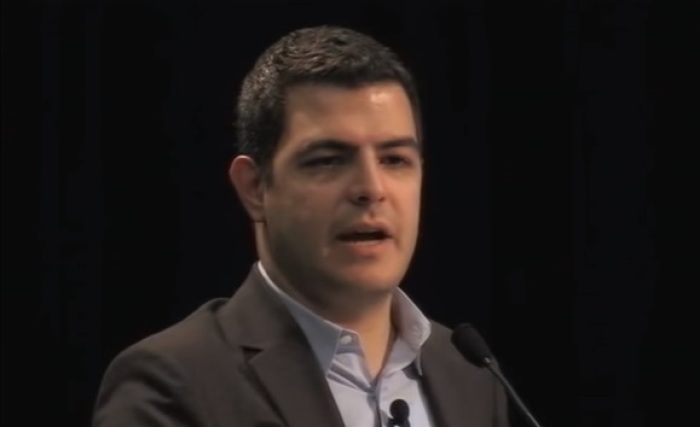Muslim-Born WSJ Writer Converts to Catholicism; Announces New Faith After ISIS Kills French Priest

Sohrab Ahmari, a Muslim-born Iranian and an editorial writer for The Wall Street Journal in London, recalls his long journey from flirtations with Nietzsche and Marxism to Roman Catholicism. He also explains why evangelicalism didn't appeal to him as much.
Ahmari, the author of The New Philistines: How Identity Politics Disfigure the Arts, announced his cession to join the Catholic Church hours after the killing of French priest Jacques Hamel in Normandy, France, in the name of the Islamic State terror group on July 26.
Though impulsive, the decision to announce his conversion was not just due to Hamel's martyrdom, explains Ahmari, who writes editorials and commissions and edits op-eds for the Journal's European edition, in an article in The Catholic Herald. "The real story was much longer and more complicated."
When Ahmari was 12, he decided that there was no God. "At school, I had already begun clashing with my Koran teacher, whose real job was to inculcate students in the regime's ideology, a mix of Shia chauvinism, anti-Americanism and Jew-hatred," he explains.
At home, he adds, he "air-drummed to Pink Floyd and read my father's weather-beaten copy of Catcher in the Rye."
In the late 90s, he moved to Eden, Utah, with his mother, and "were now in the heart of Mormon country."
He says he thought, "If Shia Islam, with its rich iconography and theology, was all hypocrisy, then Mormonism and America's Protestant ethic and cheerful consumerism were even more contemptible – and equally repressive in their own way."
Just before university, he discovered Friedrich Nietzsche's Thus Spoke Zarathustra. But he now calls the philosopher "half-mad."
"I lived totally in my head. There, the world was meaningless; and if there was any point to life, it could only be reached on the far side of God's absence," he describes his philosophy at the time.
"The next stop was Marxism – specifically Trotskyism, a more romantic strand of the totalitarian ideology," Ahmari, who earned a law degree from Northeastern University in Boston, writes. "In retrospect, it's obvious why Marxism appealed to me: it went well with the latent anti-Americanism still imprinted on my Iranian mind. With Marxism, I could oppose the U.S. as the evil capitalist hegemon without having to buy into any fanatical Shia mumbo-jumbo."
As a child, Ahmari was interrogated by security officials about his parents and faced disciplinary action for accidentally bringing a video tape of Star Wars into school as Western films were officially banned in the country at the time.
He explains his worldview as a young man was somewhat like this: "Man's place in the world is unsettled; we are homeless."
Ahmari gradually began to recognize the significance of Judeo-Christian foundations of the West, but that didn't make him a Christian. "But it helped," he writes. "If I enjoyed the beauty and ordered liberty I saw around me, then I had to give credit to the ideals that gave birth to it. You couldn't have one without the other. The beauty and order reflected an underlying truth. It wasn't my truth, but I no longer lightly dismissed faith."
During the transitional phase, the journalist's hunger for God persisted. "My life's overall trajectory was upward, but it was marked by bursts of dangerous anger and self-destructive behaviour. Shame begat shame, and the cycle repeated itself, even as I went from material success to success. I needed something or someone to break the cycle."
He adds, "Twice following bouts of heavy drinking in my early 20s I found myself instinctively, almost spontaneously, going to Catholic Mass. I really couldn't tell you why, but I just sat in the back pews and felt waves of peace wash over me – without having any clue as to what was going on."
Pope Benedict XVI's book on "the idea that Almighty God had become man and entered our history – which is to say, the central mystery of Christianity," also influenced Ahmari. As well as Caravaggio's The Denial of St Peter, his favourite painting, "a work that can bring me to tears."
"I could have told you all about Caravaggio's tumultuous life, spoken at length about why the painting is considered a masterpiece, and recounted the basics about the events he was portraying," he writes. "But then I came to understand why any of this mattered: that the Person whom St Peter is denying isn't just his great friend and teacher, but the very God Himself, God from God, who has entered our fallen world. And whose greatest act is to endure humiliation, be spat upon, crucified and even denied by his friends."
Why Catholicism? "Well, I dabbled for a couple of years with Evangelical Christianity. Catholics don't exactly send you text messages asking: 'Would you and your wife like to join us for Sunday service?' Evangelicals do," he explains. "My mother was Born Again a few years ago, and as a journalist, I would occasionally write about persecuted Christians in Iran and the Arab world. One of my sources, a conservative Evangelical activist who campaigns for the persecuted Church, became a great source of encouragement in my Christian journey. In the end, though, I couldn't do anything with Evangelical Christianity. I admired Evangelicals, but their theology didn't satisfy. I couldn't just blink and conclude 'I've been saved,'" he adds.




























